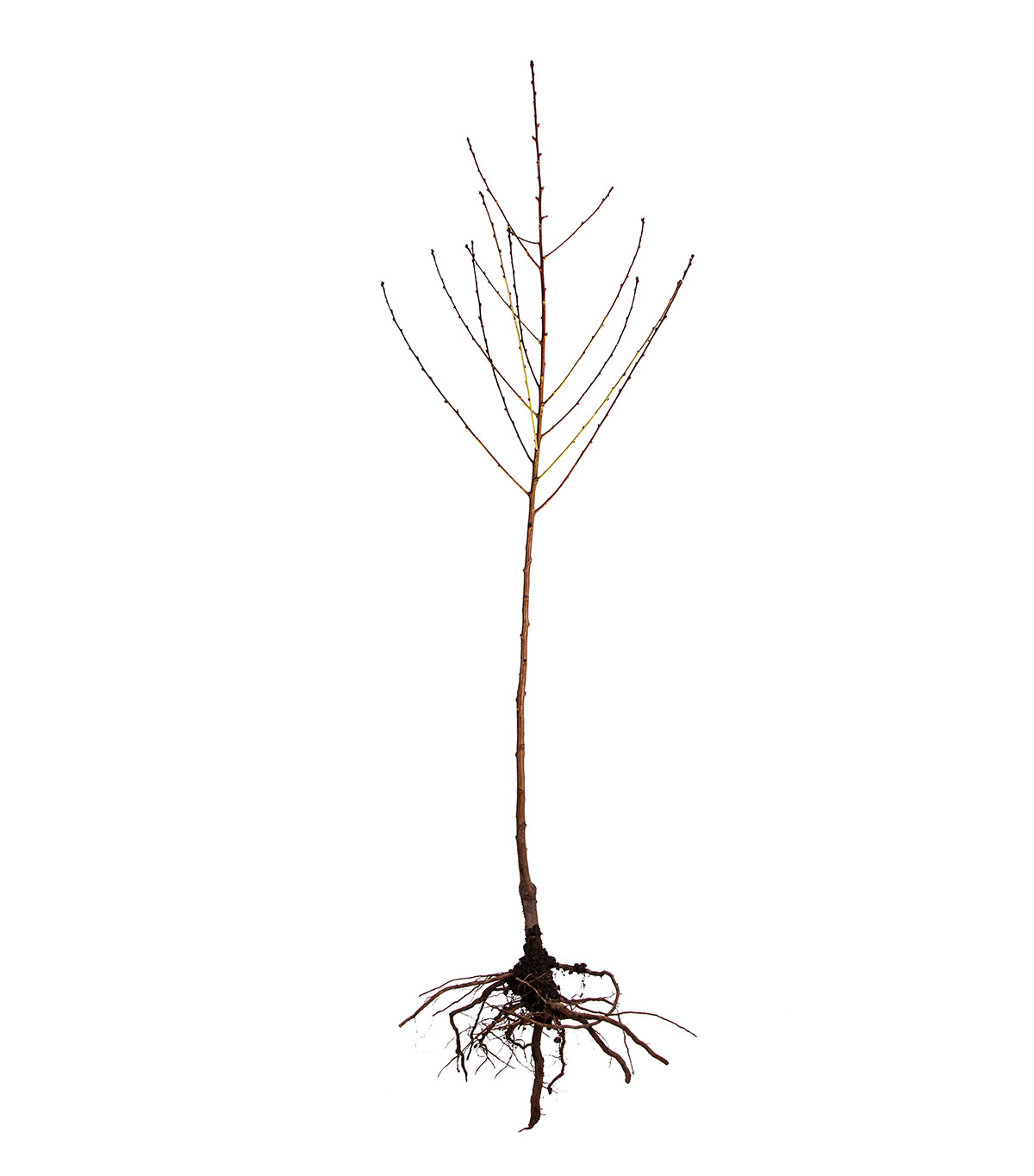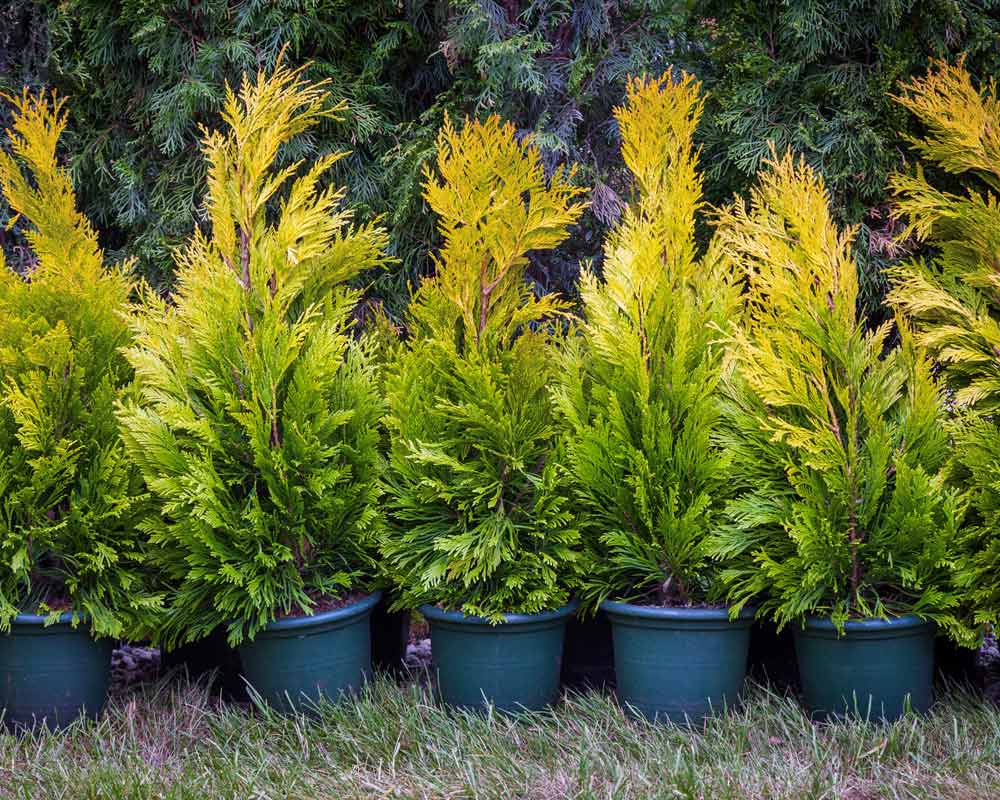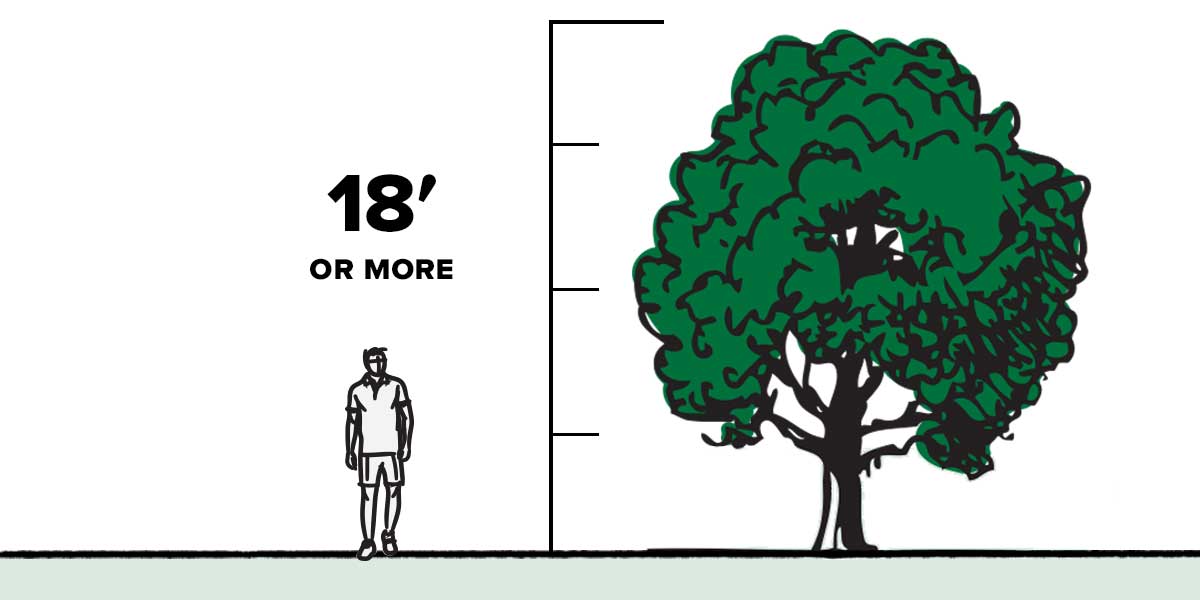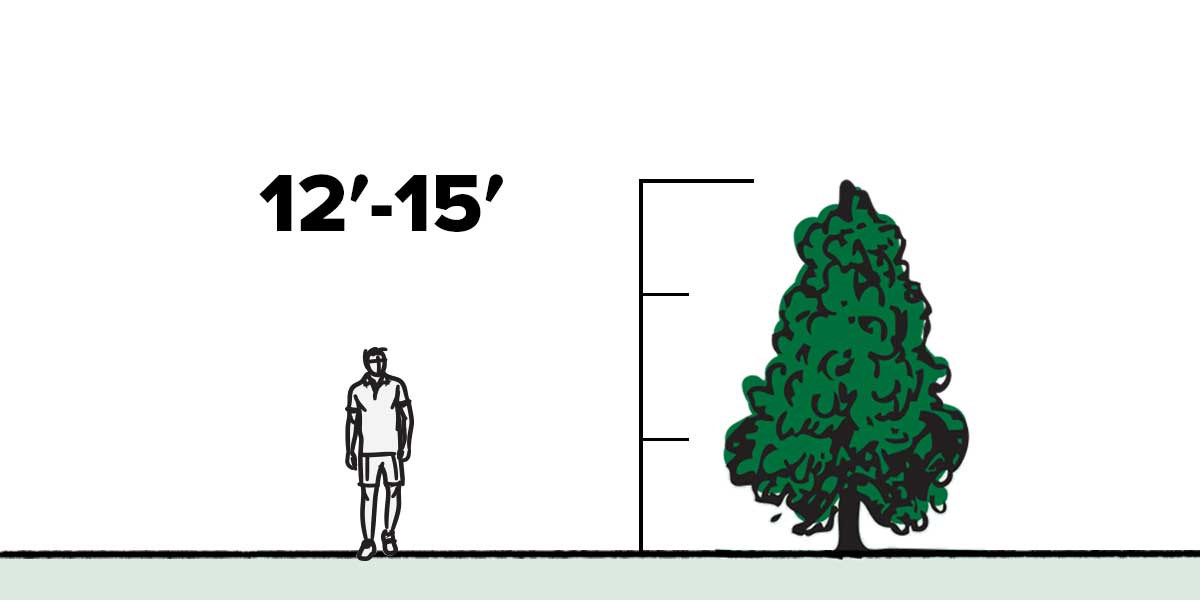Bare-root trees are shipped without soil around their roots. They are shipped when dormant (sleep state). In this dormant state, deciduous trees may display small buds but not leaves. Roots will come coated in a hydrating gel. Bare-root trees require more attention and care initially to ensure they remain properly watered and protected from extreme weather conditions.
Benefits:- Cost-effective
- Roots re-establish quickly once planted, meaning growth will begin faster
- Easy to plant at the correct depth

Potted trees are available in a variety of sizes. Because the roots are packed in soil, the trees do not need to be dormant for shipping. Potted trees often have a more established appearance with leaves and foliage, providing an immediate visual impact on the landscape.
Benefits:- Reduced transplant shock
- Extended shipping/planting season
- Higher survivability

With the option of ordering either standard or semi-dwarf trees and either bare-root or potted, be sure to consider the benefits of each option when deciding which is best for you.

Standard Height
Benefits:- Also functions as a shade tree
- Can be planted farther from compatible pollinator
- Fills a larger space

Semi-Dwarf Height
Benefits:- Easier to harvest fruit
- Bears fruit sooner
- Fits in a smaller space